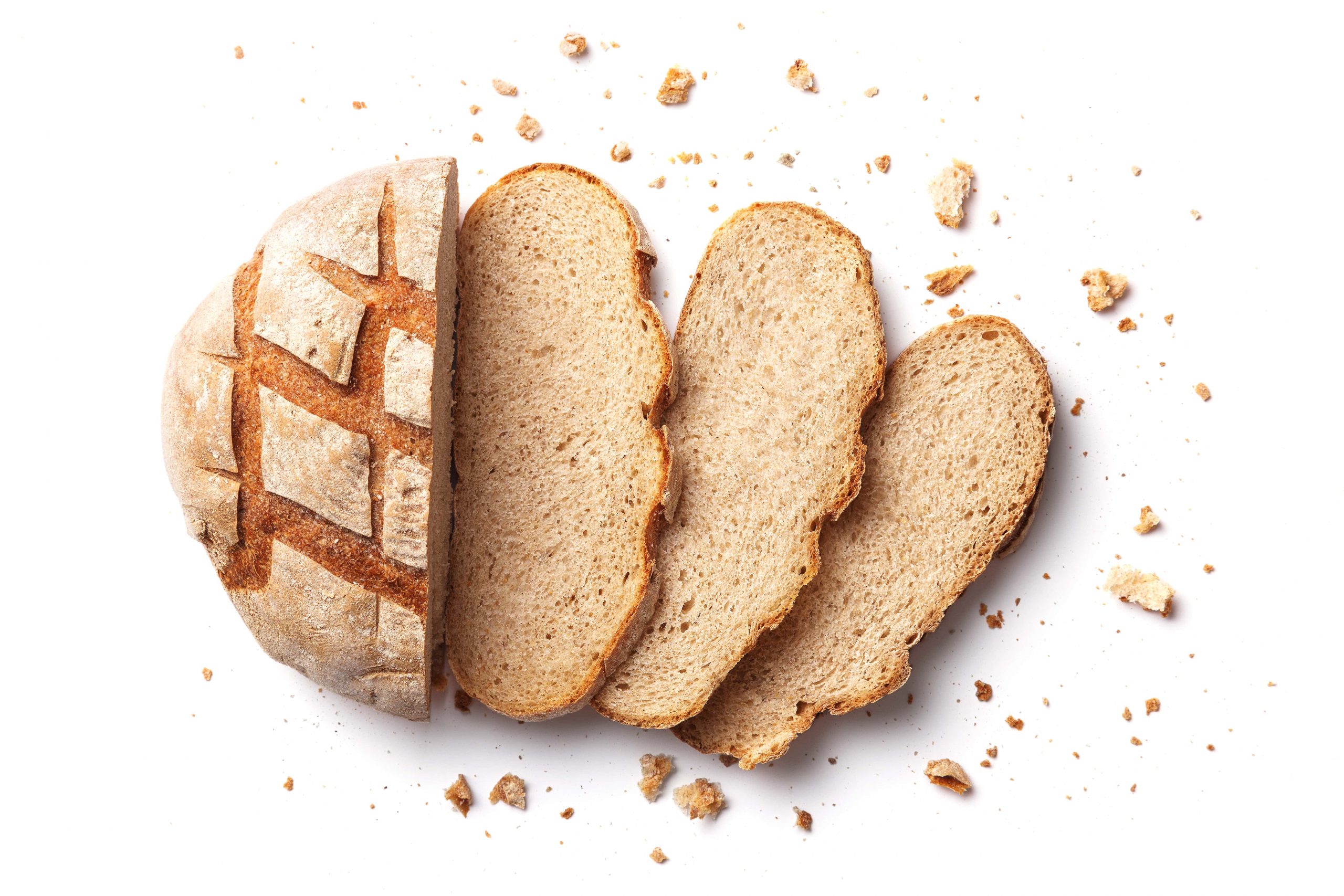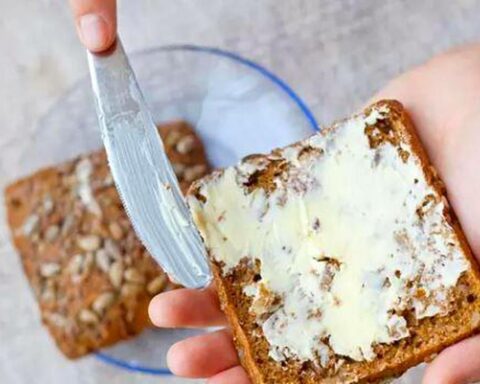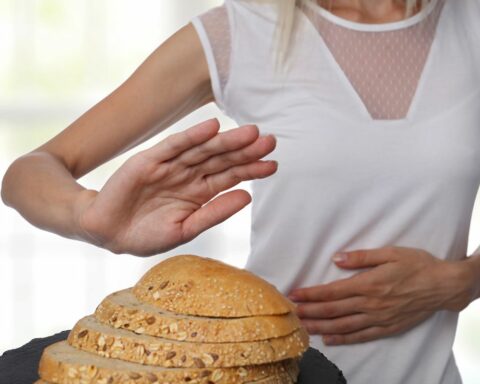Consumption of bread dates back to thousands of years ago. It still rules as a staple food for many people around the world. For its convenience, nutritional value, and taste, most people can’t just stop on bread.
This superfood exists in different types, and people make them in different ways, with a variety of different ingredients. Common types of bread include sweetened bread, whole-grain bread, unleavened bread, leavened bread, cornbread, flatbread, sprouted grain bread, soda bread, sourdough, just to mention a few. The basic ingredients of bread are water and dough flour. While bread is too popular, health experts claim that it can be unhealthy and lead to weight gain. This article review bread including its health benefits and downsides.
Contains Less Essential Nutrients
Many foods that you take, including fruits and vegetables, are high in essential nutrients – but that is not for bread. Instead, bread contains high calories and carbs, with low fiber, fat, vitamins, protein, and minerals. Since there are different types of bread made with different ingredients, the nutrient profile may vary greatly. For example, sprouted grain bread contains a high amount of beta-carotene, vitamin C, and vitamin E, while whole-wheat bread is high in fiber.
One slice of white bread, whole-wheat bread, and sourdough bread contain the following amount of nutrients respectively: calories 67, 92, and 93; carbs 13 g, 17 g, and 18 g; protein 2 g, 3 g, and 4 g; fiber 0.6 g, 2 g, and 1 g; total fat 1 g, 2 g, 0.6 g.
High In Gluten
Gluten is a family of proteins that is found mostly in grains like wheat, rye, oat, and barley. Many people find gluten safe and eat its products without experiencing any health problems. However, some people react severely to gluten. For example, people with an autoimmune disorder called celiac disease cannot tolerate gluten. They react to it, presenting with symptoms like stomach pain, diarrhea, constipation, and skin rashes.Bread is a wheat product and thus contains gluten. If you are sensitive to gluten or have celiac disease, it would help if you avoided bread based on wheat. Alternatively, you can use gluten-free bread-like those made with brown rice, tapioca, or potato flours.
Loaded with Carbs
Bread contains a high amount of carbs with white bread, for example, providing up to 13 g of carbs. Once in your body, carbs are broken into simple sugars (glucose), which causes a spike in blood sugar levels. Evidence indicates that eating even a little of foods with a high glycemic index can increase hunger and promote overeating. A Glycemic index is a tool used to measure how fast a particular food can increase blood sugar levels. Studies also suggest that eating food high in carbs can greatly increase your risk of developing type 2 diabetes and metabolic syndrome – leading to heart disease. However, some types of bread, like whole-grain bread, contain fiber. They can help reduce the rate at which sugar is absorbed in your bloodstream and regulate blood sugar levels. Fiber also increases bowel regularity, feeds good gut bacteria, and reduces the risk of coronary heart disease.
Some Varieties Contain Antinutrients
Grains naturally contain antinutrients, compounds that inhibit the uptake of certain minerals from the digestive tract into your bloodstream. One particular common antinutrient in grains is phytic acid – it inhibits the absorption of zinc, calcium, iron, and magnesium by binding to them. Varieties of bread that are high in fiber, like whole-grain bread, are thought to contain antinutrients. For people who leave on a well-founded healthy diet, antinutrients are not a cause of concern. That said, vegetarians, vegans, and those who eat a grain-based diet can run into the risk of developing nutritional deficiencies with antinutrients. Sprouted grain bread is the best alternative in this regard because sprouting or soaking grains reduce the content of antinutrients.
Some Varieties are Enriched with Vitamins and Minerals
Bread typically contains low amounts of vitamins, minerals, fiber, and protein. To compensate for these, some manufacturers add extra micronutrients to increase their nutritional value and prevent nutrient deficiencies. Usually, micronutrients added include riboflavin, niacin, iron, and thiamine. Eating bread enriched with nutrients may help meet your needs for them and reduce the risk of deficiencies.
Whole Grains Offers Several Health Benefits
Eating whole grains has been associated with a number of health benefits. To start with, they can lower your likelihood of developing certain conditions like heart disease, obesity, type 2 diabetes, and several types of cancer. It is worth mentioning that most varieties of bread are made with grains that have pulverized into finer flour. Pulverization lowers to zero the health benefits in grains and makes you digest bread faster. You may only benefit from grains like buckwheat, oat, and barley from very few types of bread, which are even hard to find in stock. However, nutrients like protein, fiber, selenium, and manganese can be found in whole-wheat bread and may help you lose weight and improve heart health.
Best Choices
It is true that some bread is unhealthy wholesome are healthy. You need to choose smartly from these varieties which fits your health and preference. Your choice may depend on your mode of diet, health status, capital, or availability of the bread itself. Generally, whole-wheat bread overweighs the white bread as it contains high amounts of protein and fiber, which can help regulate blood sugar levels. They are also loaded with important nutrients like selenium and manganese. You can also select Ezekiel bread which is made from sprouted grains. This improves its nutritional value, removes antinutrients, increases fiber, folate, beta-carotene, vitamin C, and vitamin E.
Conclusion
Bread is a staple food for many all over the world as it is convenient, affordable, nutritious, and portable. Many types of bread exist, including sprouted grain bread, sourdough bread, and unleavened bread. They are made with different ingredients, mostly dough flour, and water. Antinutrients in some types of bread can hinder the absorption of important nutrients. You can smartly choose whole-wheat bread and sprouted grain bread if you want to enjoy the health benefits of bread.
- How Long Should You Bake a Boneless Chicken Breast? - April 19, 2024
- How HØJ Became the New High - June 10, 2023
- “Sahyog-Care for You”: Empowering Communities and Creating Lasting Change - June 10, 2023









